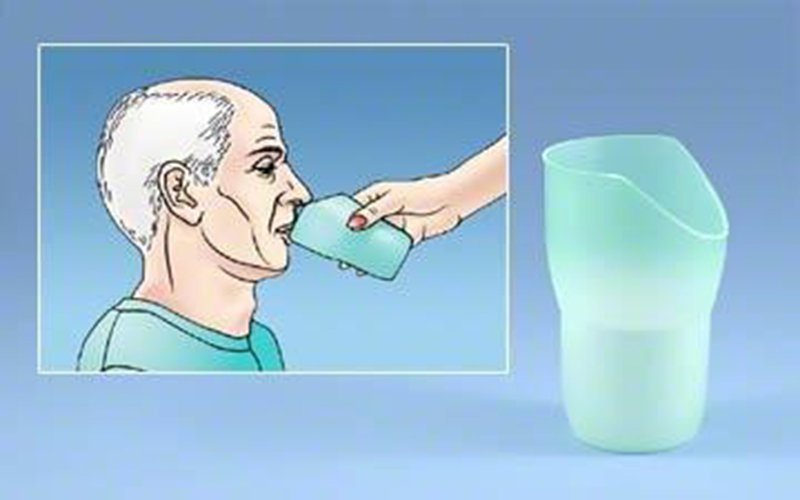Evaluation of patients with traumatic brain injury
The article was written by Doctor Le Thu Huong - Rehabilitation Doctor, High-Tech Unit for Treatment of Cerebral Palsy and Autism - Vinmec Times City International Hospital.
Rehabilitation (rehabilitation) is one of the most effective measures today for patients with traumatic brain injury and is performed very early in the emergency unit to improve the condition, shorten the time recovery time and avoid dangerous complications, patients still need to have a comprehensive and meticulous examination to assess the extent of brain damage, sequelae and accompanying injuries before planning treatment to achieve the highest recovery efficiency.
1. Evaluation of patients with traumatic brain injury
Evaluation of damage and sequelae due to traumatic brain injury:
Patients with traumatic brain injury, depending on the area of the brain damaged and the extent of the injury, will have different clinical manifestations.
Assessment of consciousness This is the most important assessment that determines any treatment plan for the patient. With varying degrees of brain damage, patients may experience coma, or mild to severe disturbances in consciousness, perception, and senses.
The Glasgow Coma Scorecard is a scorecard that is always used in medical institutions to not only assess the degree of coma, but also to assess the progress of patients with traumatic brain injury.

Đánh giá mức độ hôn mê Glasgow của bệnh nhân sau chấn thương
Evaluation of patient's mobility The mobility status of TBI patients is not only affected by paralysis, it is also affected by muscle stiffness, muscle cramps, stiffness, balance disorders, Sensory disturbances, pain or trauma associated with different degrees, requiring different rehabilitation methods to improve the problem.
Therefore, motor tests such as the Manual Muscle Test (MMT), the joint range of motion test, the assessment of spasticity, the assessment of balance, the sensory disturbances and depth should be done before planning treatment.
Supportive clinical examination: X-ray of joints in patients with stiffness, X-ray of bones in patients with associated fractures, measurement of bone density in patients with long-term immobilization to evaluate secondary osteoporosis are the Common clinical is used to support the assessment of disease status
Evaluation of swallowing disorders and language ability Patients with TBI patients with cognitive and consciousness disorders accompanied by paralysis, especially paralysis of the maxillofacial muscles and the oropharyngeal area makes it easy for patients to choke, pneumonia due to aspiration.
To evaluate this condition, in addition to assessing consciousness and movement of the mouth and pharynx, the patient is also performed swallowing tests to assess the ability to eat and drink, is indicated to put a nasogastric tube or eat with food. Adaptation devices and specialty foods, e.g. thickening water with thickeners.
Swallowing tests and language testing may be conducted in the speech therapy unit.

Test khả năng nuốt với cốc khuyết mũi
Evaluation of round muscle disorders 68% of patients with fecal incontinence and about 70% of patients with urinary disorders after traumatic brain injury. For patients with abdominal, pelvic, and pelvic trauma, this problem is even more serious.
With these conditions, the patient should have abdominal ultrasound, pelvic imaging to rule out the cause of circular muscle disorders due to physical damage.
Urodynamic measurements are performed to identify bladder and urethral sphincter dysfunction.
Measure anorectal manometry to assess bowel disorders.
2. Evaluation of other health problems
Patients with traumatic brain injury need to have their general health checked to assess their ability to participate in exercise. Issues of special concern are cardiovascular function, respiratory function, anemia, thromboembolic problems... because problems in these organs are very common in TBI patients, affecting directly to the patient's treatment plan.

Vấn đề tim mạch thường gặp ở bệnh nhân chấn thương sọ não
Evaluation of respiratory function C Patients with TBI often experience pneumonia, which can be caused by aspiration, lying for a long time, limited breathing capacity due to paralysis or trauma to the chest. In addition to the physical examination, a chest X-ray or MRI may be performed to evaluate lung lesions; Pulmonary function testing may be performed to plan the patient's respiratory rehabilitation.
Evaluation of cardiovascular function, risk of thromboembolism Patients with TBI are at high risk for limb embolism, pulmonary embolism due to prolonged lying down, immobility, hypercoagulability, or other trauma to the legs and frame. pelvis, thorax. These problems can be dangerous during exercise if not detected early and not well controlled. For patients with suspected embolism, cardiac problems, echocardiography, echocardiography, and angiography when needed to support the diagnosis.
Testing of clotting factors has prognostic value and monitoring patients at risk of thrombosis.

Siêu âm mạch máu để hỗ trợ chẩn đoán khả năng tắc nghẽn
Evaluation of anemia Patients with traumatic brain injury may be accompanied by other traumas, especially bone fractures, closed organ injuries, pelvic fractures ... causing the patient to lose blood, reduce weekly volume. complete. If not detected early, or the risk is not properly assessed, can make bleeding worse and the patient can go into shock, which is life-threatening. Therefore, patients need to be evaluated and controlled closely throughout the course of treatment.
Pain, sensory disturbances, pressure ulcers are also common problems in TBI patients. When properly evaluated, and supported with treatment, the patient's ability to recover will be better.
Vinmec International General Hospital is one of the hospitals that not only ensures professional quality with a team of leading medical doctors, modern equipment and technology, but also stands out for its examination and consultation services. comprehensive and professional medical consultation and treatment; civilized, polite, safe and sterile medical examination and treatment space.
Customers can directly go to Vinmec Health system nationwide to visit or contact the hotline here for support.
MORE:
Symptoms of mild traumatic brain injury Treating severe traumatic brain injury Injuries caused by traumatic brain injury






